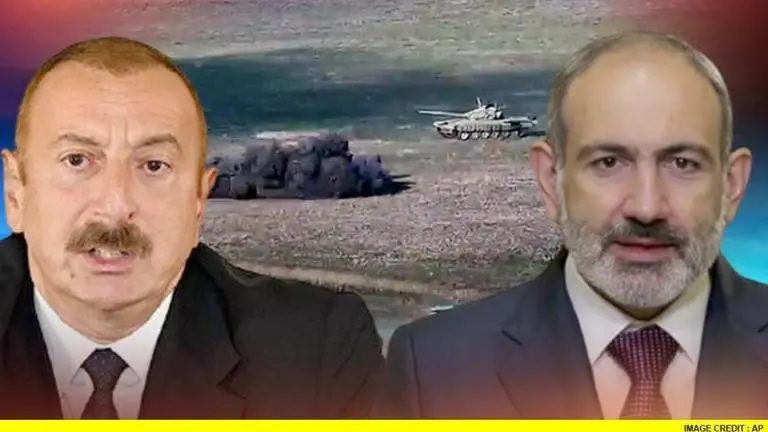Updated 28 September 2020 at 19:26 IST
Armenia-Azerbaijan conflict: Decades-long territorial dispute and impact on world markets
The decades-old territorial dispute between Azerbaijan and Armenia again turned into deadly clashes with at least 23 people losing their lives on September 27.
- World News
- 2 min read

The decades-old territorial dispute between Azerbaijan and Armenia again turned into deadly clashes with at least 23 people losing their lives on September 27. The two former Soviet states are in an armed stand-off for years over the Nagorno-Karabakh, a landlocked region in the South Caucasus, and heavy clashes re-erupted on Sunday, prompting fears of an all-out war.
Nagorno-Karabakh is internationally recognised as a part of Azerbaijan but it remains disputed because the region is controlled by ethnic Armenians. Azerbaijan has declared martial law in border areas and Armenia has declared it across the country and mobilised its male population after the situation escalated in the disputed region. Armenia has even accused Turkey of meddling in the conflict by sending thousands of mercenaries from Syria, a claim swiftly rejected by Ankara.
Russia-Turkey position
While Russia, an ally of Armenia, called for an immediate ceasefire, Turkish President Recep Tayyip Erdogan explicitly extended support to Azerbaijan, urging the international community to stand with Baku in its "battle against invasion and cruelty". Active involvement of regional players like Russia and Turkey, countries already at loggerheads over the Syrian crisis, could aggravate the situation.
Bishkek Protocol
The conflict broke away in the early 1990s with tens of thousands dying in the armed clashes and a Russian-brokered ceasefire, the Bishkek Protocol, was signed in 1994. However, the Bishkek Protocol has failed to turn into a tangible peace process since both sides have continued violating the ceasefire on numerous occasion and the latest clash could further escalate the tensions.
Advertisement
Advertisement
Impact on markets
A possible war could severely impact the international markets because Nagorno-Karabakh serves as a corridor for oil and gas pipelines from the Caspian Sea to world markets. France, Germany, Italy, the United States, and the European Union have urged an immediate ceasefire and the United Nations chief Antonio Guterres has expressed extreme concern over the fresh resumption of hostilities.
Stephane Dujarric, Spokesman for the Secretary-General, said in a statement that Guterres condemns the use of force and regrets the loss of life and the toll on the civilian population. The top UN official has strongly called on the sides to de-escalate tensions and return to meaningful negotiations without delay.
“He will be speaking to both the President of Azerbaijan and the Prime Minister of Armenia,” the statement read.
Published By : Kunal Gaurav
Published On: 28 September 2020 at 19:27 IST
